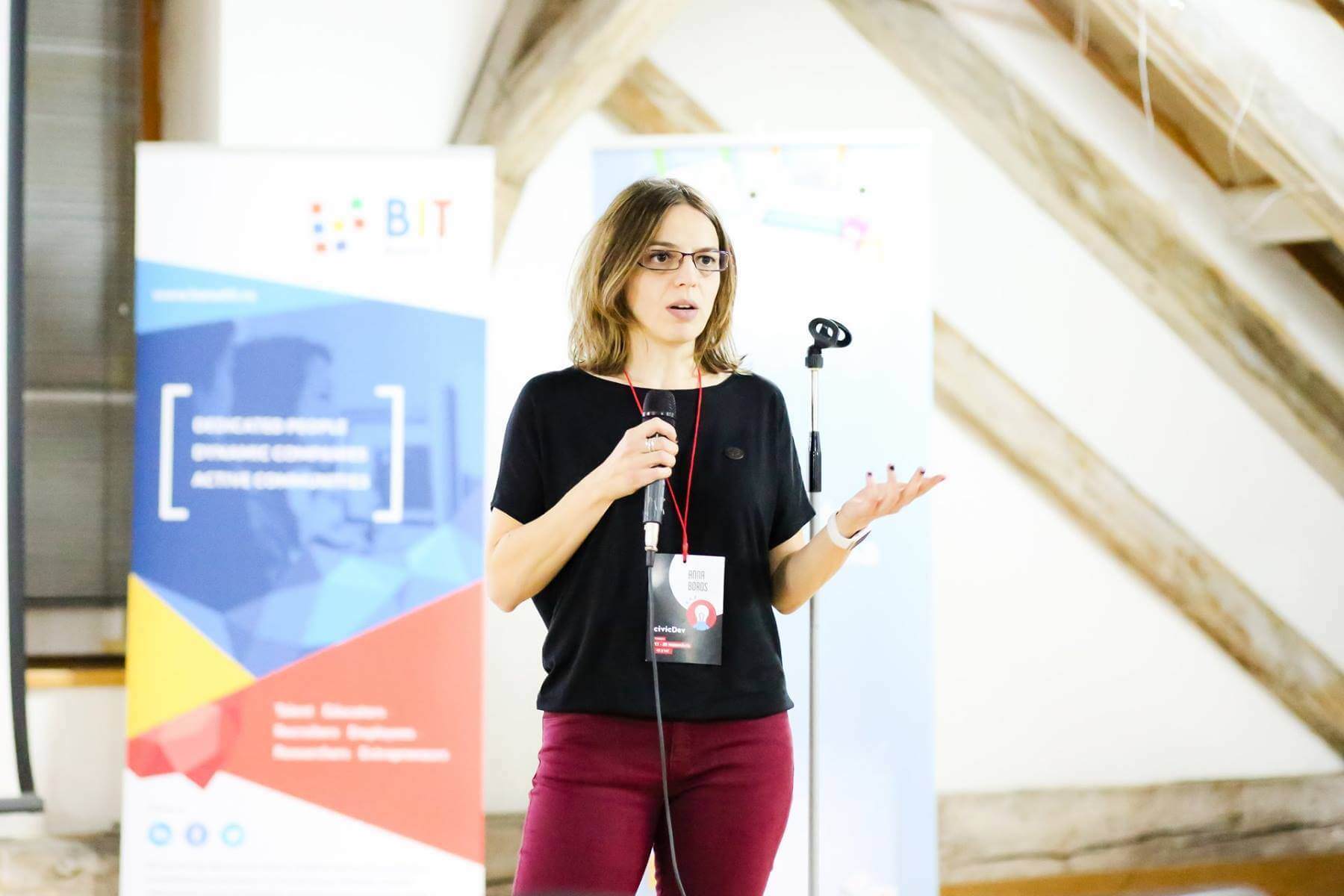(Women on Top in Tech is a series about Women Founders, CEOs, and Leaders in technology. It aims to amplify and bring to the fore diversity in leadership in technology.)
Here is my interview with Anna Boros, Founder of DevPlant and President of Banat IT, an NGO supporting and promoting the local tech community. She is a software engineer by training, living in Timisoara, Romania. The past years her focus moved to sharing knowledge and enabling fellow developers reach their potential.
What makes you do what you do?
A series of very fortunate events 🙂 I have always been a very technical person, inclined to play more with hammers and screwdrivers than with dolls and plush toys. I am very lucky to have parents who always encouraged me to do whatever I found interesting. But as I grew older and got exposed to different ways of thinking, I shifted to looking at technology as a means to empower people.
How did you rise in the industry you are in?
“Rising” feels like a pretentious word. I persevered in the industry by working hard and never settling.
A regular software developer job, although at first exciting and financially rewarding, became predictable and unsatisfying in just a span of a few of years. I was lucky enough to work for a company where I began to understand the importance of people in the age of technology.
The outcome of my early software developer career was a year-long sabbatical which I took to better understand myself, my goals, and learn to enjoy life. It was during this time that I started volunteering at Banat IT, a non-profit organization based in Timisoara that supports the evolution of the local tech scene. HackTM, the largest hackathon in southeastern Europe, is the Banat IT project I feel closest to. Organizing large-scale events, building an amazing team, supporting individual developers in their quests were all experiences that in the end lead to my appointment as President of the Banat IT Association, and the founding of DevPlant, a company that focuses on developer training, consulting, and continuous self-improvement.
Why did you take on this role/start this startup especially since this is perhaps a stretch or challenge for you (or viewed as one since you are not the usual leadership demographics)?
The challenge to start DevPlant came from my personal belief that the best way to contribute to a healthy tech ecosystem is by giving fellow developers the chance to learn and also share their knowledge. Nowadays, almost everyone can code, but real expertise takes years of hard work. Having the chance to learn from accomplished specialists is one of the things we need to grow out of the outsourcing- and FTE-driven IT industry we in Romania rely on.
Our work at Banat IT is that of volunteers and it’s especially challenging to find time to implement all our ideas and plans. However, the trust that I was given is honoring and I would never have accepted the challenge without the support of the entire team.
Do you have a mentor that you look up to in your industries or did you look for one or how did that work? And How did you make a match if you and how did you end up being mentored by him/her?
I can’t say that I have a mentor, per se. I try to listen and learn from everyone around me.
Now as a leader how do you spot, develop, keep, grow and support your talent?
We live in an age in which it is impossible to thrive without continuously seeking self-development. Whether it’s about embracing technology to improve our lives, or taking on other challenges that better ourselves, I encourage people to not be afraid of changes, but rather embrace them and make the best of them.
I still don’t necessarily see myself as a leader in the classical sense. My sole responsibility is making sure everyone on the team has valuable input and that their voices are heard. All the work is shared, and if I were to suddenly disappear, it would have minimum impact.
Do you consciously or unconsciously support diversity and why?
Consciously supporting diversity of perspectives and experiences, yes. The direct outcome is that there’s no gender in Banat IT team, about 20% of HackTM attendees are women, participants are aged between 7 and 50, and besides developers, the hackathon welcomes designers, engineers, doctors, architects, and anyone who has something valuable to contribute.
We still have things to work on and we shouldn’t support diversity just for the sake of diversity, but for the added value it brings.
What is your take on what it takes to be a great leader in your industry and as a general rule of thumb?
Any leader in the end is only human and their greatness is given by the value of the people they surround themselves with. To nurture a successful team, one needs to learn to listen and understand the perspectives and contexts of the people around them. If one honestly does that, it is a lot easier to take even controversial decisions.
Advice for others?
Don’t be afraid to share your knowledge and experiences. Whether it’s a business idea or a worry, find people to talk to and listen to what they have to say.
My focus in the near future will be to bring as many people closer to technology as possible: doctors could give valuable feedback to app developers, accountants could work closer together with UI/UX designers and product managers, some civil engineers still know nothing about collaboratively editing documents in the cloud… the examples could go on and on. We share so much knowledge among ourselves… let’s use it!
If you’d like to get in touch with Anna Boros, please feel free to reach out to her on LinkedIn: https://www.linkedin.com/in/anna-boros-bb300033/
To learn more about DevPlant, please click here.
To learn more about Banat IT, please click here.




























